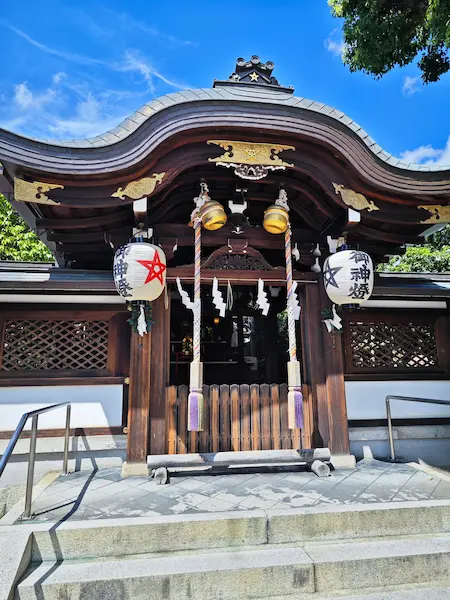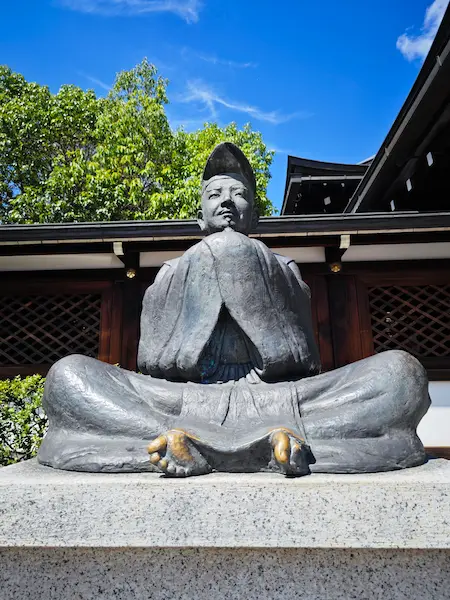Seimei Jinja Shrine is dedicated to Abe no Seimei, an astronomer and Onmyoji of the mid-Heian period. This is a shrine for “exorcism” and “protection from evil spirits”. Even today, many worshippers visit the temple and offer prayers to ward off their evil spirits.

Emperor Ichijo, who praised the great deeds of Abe no Seimei, ordered to build the Seimei Jinja Shrine in the present location in 1007, the site of his residence, to repose his soul. Throughout his lifetime, novels and common people alike placed wide trust in him to alleviate their worries and sufferings.

Abe no Seimei served in the entourage of six emperors; from the Suzaku to Murakami, Reizei, Enryu, Hanayama, and Ichijo. While in the service of Emperor Murakami, he traveled to Tang China to study. And upon his return to Japan, he established the uniquely Japanese Yin-Yang method based on this study.
What is an Onmyoji (陰陽師)?
An “Onmyoji” is a term to describe a traditional Japanese practitioner of “Onmyodo”. Onmyodo engages in a blend of spiritualism, divination, and esoteric practices. It based on the Yin-Yang philosophy and the Five Elements theory. This practice has its root in ancient East Asian cosmology and belief systems. An Onmyoji works with the concepts of balance between opposing forces (Yin and Yang) and the interactions of the Five Elements (wood, fire, earth, metal, water) to influence natural phenomena and human destiny.
Onmyoji historically played roles akin to shamanic priests and priestesses. They conducted mystical rituals, performing divinations, and communicating with spiritual entities or malevolent forces. Imperial courts, aristocrats, and the royal family often sought them out to gain insights into matters like auspicious dates, health concerns, and spiritual protection.
Their knowledge extended into various fields. They include feng shui and astrology, and their practices became deeply integrated into Japanese culture and religion. The legacy of Onmyoji continues to influence Japanese spirituality and traditions until now.